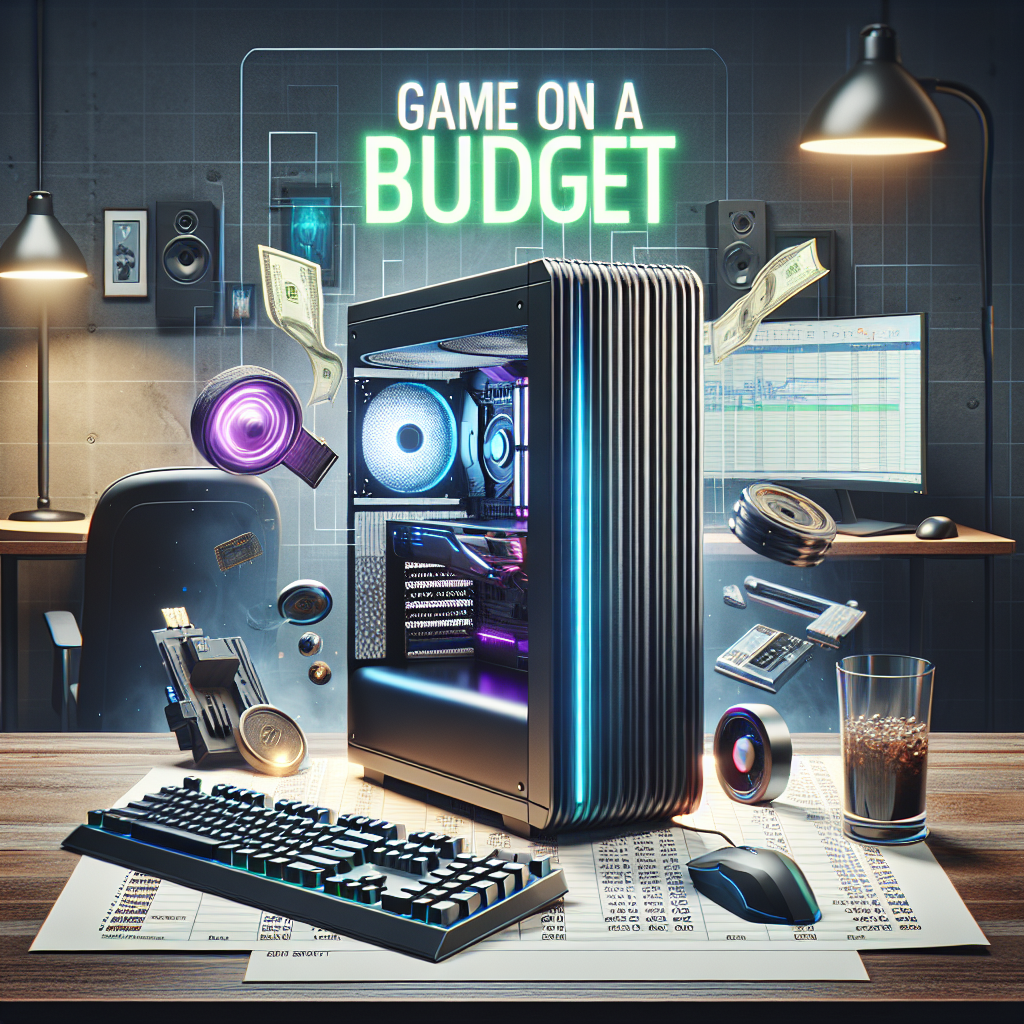Game On a Budget: Affordable Gaming PCs That Don’t Compromise on Performance
In a world where gaming has become one of the most popular forms of entertainment, having a capable gaming rig is essential. However, not everyone has the budget for a premium gaming PC. Fortunately, the gaming landscape has evolved, enabling gamers to find systems that offer solid performance without breaking the bank. This article will guide you through the essentials of building or purchasing an affordable gaming PC that delivers the performance you need without sacrificing quality.
Understanding Your Needs
Before diving into the specifics of affordable gaming PCs, it’s essential to understand what you’re looking for. Are you a casual gamer who primarily plays indie titles and older games, or do you want to dive into AAA games with demanding graphics? Knowing your gaming preferences will help you make informed decisions about your build or purchase.
Key Components for Affordable Gaming PCs
-
Processor (CPU):
The central processing unit is crucial for performance. For budget builds, consider CPUs like AMD Ryzen 5 5600G, which offers integrated graphics, or Intel’s Core i5-12400F paired with an affordable graphics card. Both options provide excellent performance for gaming without the need for a high-end processor. -
Graphics Card (GPU):
The GPU is the heart of a gaming PC. Rather than going for the latest high-end models, look for mid-range GPUs like the NVIDIA GeForce GTX 1660 Super or AMD Radeon RX 6600. These options provide excellent performance for most modern games at 1080p resolution, allowing you to enjoy your gaming experience without overspending. -
RAM:
Aim for a minimum of 16GB of RAM. This amount is becoming the standard for gaming and ensures that your system can handle multitasking without any hiccups. Brands like Corsair and G.Skill offer good options at various price points. -
Storage:
Solid-state drives (SSDs) have become remarkably affordable. A 500GB SSD will provide faster load times compared to traditional hard drives, enhancing your overall gaming experience. You can pair it with a larger hard drive for additional storage needs. -
Motherboard:
Choose a motherboard that supports your CPU and has enough slots for future upgrades. Look for value-oriented options from brands like ASUS or MSI that offer a good balance of features and affordability. -
Power Supply Unit (PSU):
A reliable power supply unit is crucial for system stability. Make sure to choose one from a reputable brand like EVGA or Corsair that offers sufficient wattage for your components. - Case:
While aesthetics matter, don’t overspend on a case. Opt for a mid-tower case that provides adequate airflow and enough space for future upgrades.
Building vs. Buying Pre-Built
When it comes to acquiring an affordable gaming PC, you have two primary options: building your system or buying a pre-built.
Building Your Own PC
Building your gaming PC lets you customize each component based on your preferences and budget. It also often results in better price-to-performance ratios. Numerous online resources and communities can provide guidance to new builders. Just be mindful of compatibility between parts.
Pre-Built Options
For those who prefer convenience, several brands offer budget-friendly pre-built gaming PCs. Companies such as Dell (with their G-series), HP (Omen series), and CyberPowerPC provide good models that often include warranties and support, making them appealing for less tech-savvy users.
Budget Estimates
For a well-rounded gaming PC, you should aim for a budget of around $800 to $1200, depending on the specifications you choose. Here’s an estimated breakdown:
- CPU: $150-$300
- GPU: $250-$400
- RAM: $50-$100
- Storage (SSD + HDD): $100-$200
- Motherboard: $70-$150
- PSU: $50-$100
- Case: $50-$100
Conclusion
Gaming on a budget is not only possible but can also lead to the creation of a robust and capable gaming machine. By choosing your components wisely or selecting a suitable pre-built system, you can enjoy a fulfilling gaming experience without emptying your wallet. Whether you decide to build your rig or opt for a pre-built solution, keep your gaming needs in mind, and always remember that performance doesn’t have to come with a premium price tag. Happy gaming!




